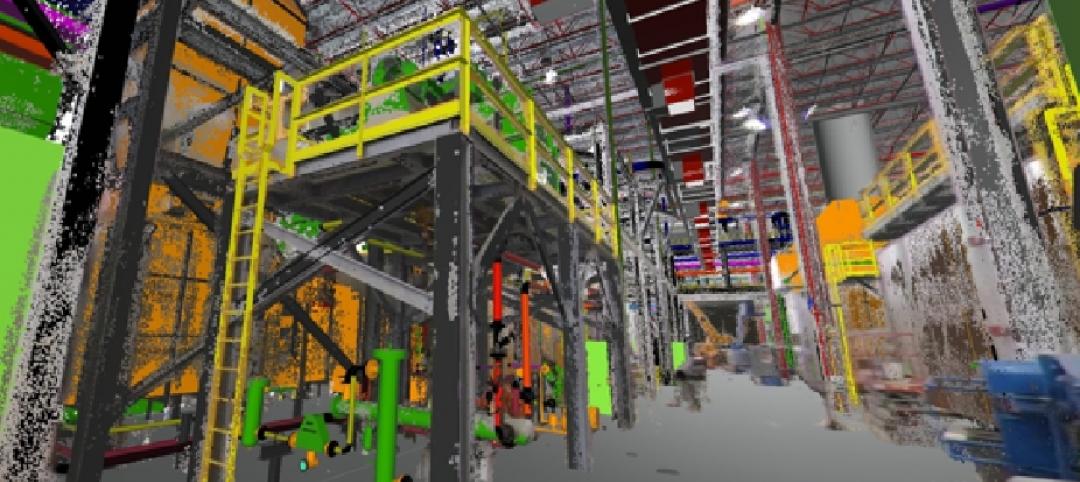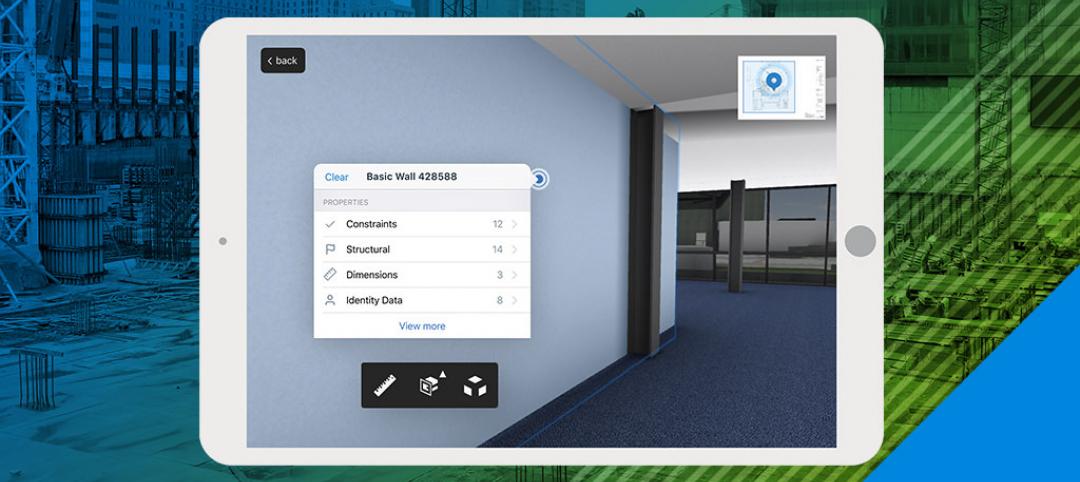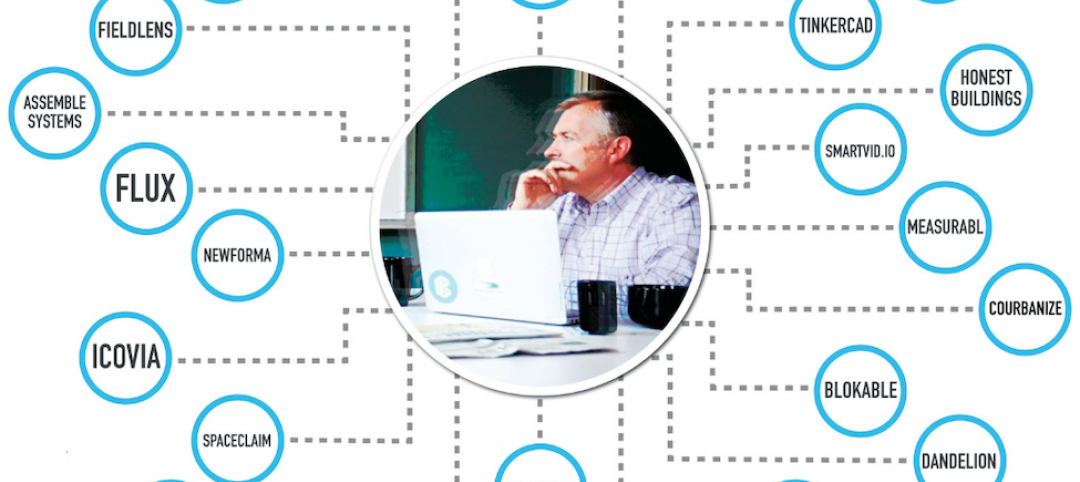Managers of companies in the industrial sector, including construction, have bought the hype of artificial intelligence (AI) as a transformative technology, but their organizations are not ready to realize its promise, according to research from IFS, a global cloud enterprise software company.
An IFS survey of 1,700 senior decision-makers found that 84% of executives anticipate massive organizational benefits from AI. The top three areas where AI is expected to deliver high impact value are product and service innovation, improved internal and external data availability, and cost reductions and margin gains.
But many organizations have not prioritized key elements of AI development, nor do they have the infrastructure and skills required to reap the rewards. More than one-third (34%) of businesses have not moved to the cloud. “While this is not essential to AI adoption, it is indicative of an unprepared enterprise unlikely to be able to scale AI across their business,” IFS says.
“The lack of maturity at the data foundation layer needs to be addressed as part of an overall AI strategy, otherwise AI simply will never be the magic bullet that can turbocharge the enterprise,” says Christian Pedersen, chief product officer, IFS. “Clearly enterprises need support on data management and migration. While AI is seen as a shiny new tool that will revolutionize business, like all technology, it is never that simple. The power of industrial AI is that it can touch all facets of a business, from product innovation and customer experience to productivity and ESG.”
Here is the full press release from IFS:
New research from IFS, the global cloud enterprise software company, has found that executive and board leadership have ‘bought the AI hype’ but organizations are unable to deliver operationally on expectations. The new global study of 1,700 senior decision makers, Industrial AI: the new frontier for productivity, innovation and competition, found that the promise of AI is being held back by technology, processes and skills. Half of respondents remain optimistic that with the right AI strategy, value can be realized in the next two years, and a quarter believe in the next year.
Expectations failing to meet reality
84% of executives anticipate massive organizational benefits from AI, with the top three areas AI is expected to deliver value in being high-impact: product & service innovation, improved internal & external data availability, and cost reductions & margin gains. The hype has become so high that 82% of senior decision-makers acknowledge that there is significant pressure to adopt AI quickly. However, this same group of respondents state that they are concerned that a failure to plan, implement and communicate properly means AI projects will stall in pilot stage.
Many organizations have not prioritized elements of development, nor have the infrastructure required to reap the rewards or the skills to deliver on that promise. The study found that over a third (34%) of businesses had not moved to the cloud. While this is not essential to AI adoption, it is indicative of an unprepared enterprise unlikely to be able to scale AI across their business. According to IFS, a robust Industrial AI strategy requires a potent combination of cloud, data, processes, and skills. 80% of respondents agree that the lack of a strategic approach means they have insufficient skills in-house to successfully adopt AI. This sentiment is seen elsewhere in the research with 43% of respondents rating the quality of AI resources in their business, in terms of human skills, as passable and not where it needs to be.
Christian Pedersen, Chief Product Officer, IFS, commented: “AI is poised to become the most transformational enterprise tool ever seen, but our research reveals that there are still fundamental misunderstandings about how to harness its power within an industrial setting. It is telling that AI is expected to significantly reduce costs and raise margins, but a lack of robust strategy means most businesses are under-skilled and under-prepared to achieve these ambitions. We built IFS.ai specifically with these challenges in mind. AI value simply will not be found in a single AI capability but instead by delivering AI across all products and business processes. This supports customers' decision cycles and provides the data and AI services required to realize value faster.”
Pedersen continued: “Achieving this at scale needs a clear-eyed strategic focus, including the high-impact use cases specific to their industry, having a cloud-based infrastructure in place which has industrial AI embedded, and investing early in developing the skills needed. Adopting this approach will turn the tide of disillusionment, and deliver the benefits that boards and the C suite are demanding.”
Outlook optimistic but planning needed
The unfortunate reality of the skills gap means that in terms of AI readiness, many businesses are falling behind. IFS found that nearly half of respondents (48%) were most likely to say that they are gathering proposals and were much less likely to have a clear strategy and perceivable results (27%). A fifth of respondents are in the research phase, with uncontrolled tests taking place and a further 5% are lacking a coordinated approach and do not have anything in motion yet. Despite initial challenges, there is still optimism with respondents most likely to feel AI could make a significant difference to their business in 1-2 years (47%), and a further quarter (24%) believe it could be within a year.
In particular, respondents are most optimistic about the impact of AI in smart production and/or service delivery on effectiveness & business and operational management (22%) in the future. One fifth see the biggest impact being on innovation with new products and services (20%), growth & business model decision-making (20%), empowering people and increasing talent retention (19%), and customer experience and customer service (19%).
Action needed on data readiness
To reap these benefits, enterprises need to leverage the most strategic asset they have – their data. The right data volume and quality is critical for the success of AI applications. Respondents recognize how important real-time data is to successful AI projects, with over 4 in 5 (86%) stating this. Yet despite this recognition, less than a quarter (23%) of respondents have completed their data foundation with it supporting both data-driven business decision making and real time response to changes, suggesting that more work needs to be done to get data AI ready. Moreover, under half (43%) of respondents have majority structured data, with some unstructured.
Pedersen commented: “The lack of maturity at the data foundation layer needs to be addressed as part of an overall AI strategy, otherwise AI simply will never be the magic bullet that can turbocharge the enterprise. Clearly enterprises need support on data management and migration. While AI is seen as a shiny new tool that will revolutionize business, like all technology, it is never that simple. The power of Industrial AI is that it can touch all facets of a business from product innovation and customer experience to productivity and ESG. Its potential is massive if executives and organizations can combine vision, strategy, technology and skills. Now is the time to step back, take stock, and build a true Industrial AI plan and turn the hype into reality.”
Methodology:
Censuswide surveyed 1,709 C-level/President/SVP/Directors who work in Manufacturing, Telecommunications, A&D, Services, Construction & Engineering or Energy & resources in organizations with $50m+ annual revenue (Aged 18+) across the UK, USA, Canada, Germany, France, UAE, Norway, Japan, Australia, Sweden, Denmark and Finland between 06.03.2024 - 27.03.2024.
Related Stories
AEC Tech | Jun 10, 2019
Mortenson joins forces with robotics technology producer
The partners will focus on equipment used for earthmoving in wind and solar projects.
AEC Tech | May 15, 2019
AI and digital twin firm Reconstruct Inc. closing $7.7 million Series A investment
Reconstruct’s AI and digital twin capabilities provide indoor/outdoor views for project stakeholders to track and resolve project issues in a virtual environment before they impact cost and schedule.
AEC Tech | May 7, 2019
Can machines design?
Instead of debating about whether machines can design, why don’t we ask, What if they could? How might architecture change if computers take over the process entirely?
Codes and Standards | Apr 25, 2019
Report: Contractors invest $1.6 billion in workforce development annually
ABC members increased training spending 45% from 2013, according to a new report.
AEC Tech | Apr 24, 2019
PlanGrid Delivers BIM Data in 2D and 3D Directly to Mobile Users in the Field
One of the construction industry’s most widely-used mobile technologies makes critical data accessible in the field with first major Autodesk integration after acquisition.
Digital Twin | Apr 24, 2019
Can Digital Twin make project management more efficient?
One leading owner’s rep is pushing that idea with its “OneModel” BIM-sharing approach.
Movers+Shapers | Apr 19, 2019
AEC angel investor
Jesse Devitte is among the prescient venture capitalists who’ve bet on the AEC industry finally coming around to design and construction technology.
AEC Tech | Apr 17, 2019
4 fundamental relationships between buildings and machines
If and when AI drives the entire process of design, construction, and operation, buildings could become exponentially smarter with resources, money, time, and performance.
AEC Tech | Apr 12, 2019
NBBJ creates Design Performance Group whose goal is to connect building design with occupant wellbeing
The firm also wants to advance energy efficiency in its projects.
AEC Tech | Apr 10, 2019
Speaker Update! Accelerate AEC Innovation Conference, May 13-14, NYC
BD+C's third-annual Accelerate AEC Innovation Conference (May 13-14, NYC) will explore AI in architecture, offsite construction, smart buildings, AEC business innovations, big data in construction, and much more.

















